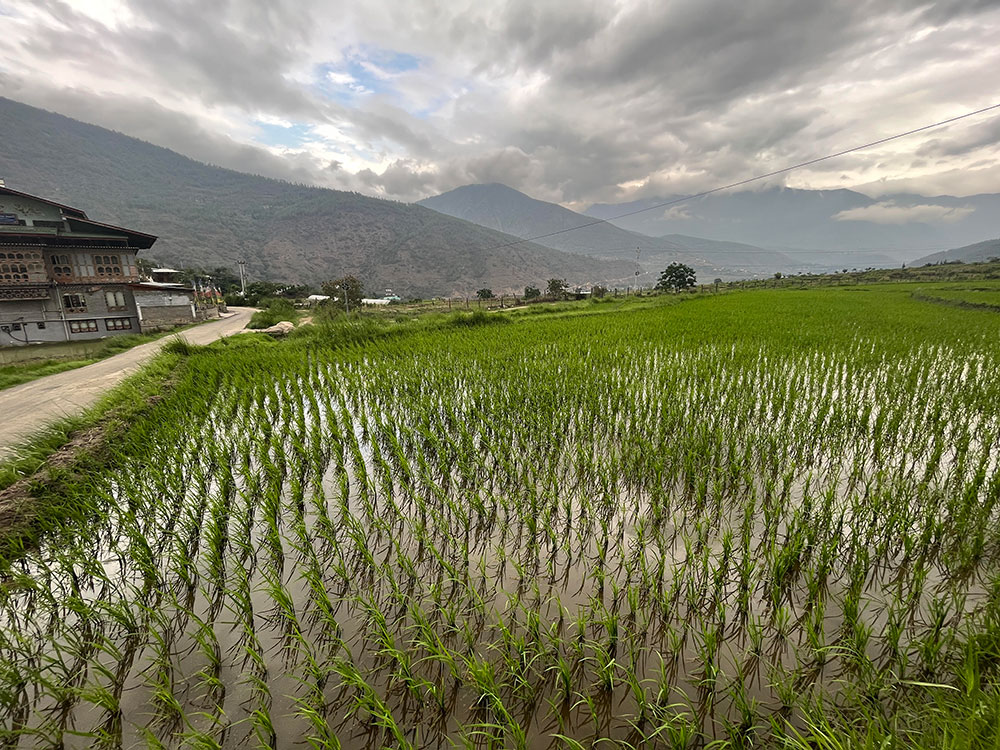
Woman accused of stealing water complains to police
Punakha — In what is an evidence of acute water shortage and desperation, a 35-year-old woman from the Yuwakha , Barp gewog in Punakha, filed a police complaint against a group of men from the Tshokorna chiwog. They destroyed the bund (Batse) between her paddy fields and removed paddy accusing her of stealing irrigation water when it was not her turn.
While police have asked elected local government members to mediate the issue, the complaint on June 25 to police, highlights the problems of water shortage during the crucial paddy transplantation season.
The gewog has a long-standing custom where if the share of water of others’ is stolen, the paddy fields are ruined and freshly transplanted paddy uprooted. This is to ensure that chiwogs stick to their turn for share of water. When water becomes scarce, stealing becomes a norm.
Mangmi of Barp gewog, Cheychey said that although it is not the best practice, such problems occur every year during paddy transplantation.
The five chiwogs take turns to irrigate their fields. The chiwogs are divided into Chang, Barp, and Wang in deciding their turn to receive water. But Chang stealing Barp’s water or Wang stealing Chang’s water under the cover of darkness is also a tradition.
If they can escape the wrath of the fellow villagers, they can cultivate paddy. If not, their fields will be emptied of water and paddy destroyed.
This is the second incident where stealing water has escalated to a bigger problem.
The Mangmi said that of the five chiwogs, Tshokorna and Eusakha are the worst affected because they are located at the end of the irrigation channel that draws water from the Toeb Rongchhu near Chagsa.
“The little water they get is sometimes stolen, so they have no choice but to resort to the age-old tradition out of frustration,” he said. About 40–50 houses in Tshokorna chiwog struggle with insufficient water for irrigation every year, particularly when it is not raining like this year.
The Mangmi said that a gewog tshogde meeting is scheduled for next week to discuss the tradition and find alternatives like imposing monetary fines.
Even though there haven’t been any reports of physical altercations in the gewog as yet, verbal altercations happen frequently, especially during paddy cultivation. “If we don’t step in or find a better solution, there’s a potential that a dispute could turn physical,” he added.
Tshokorna chiwog in particular will not be able to cultivate paddy if the gewog does not establish a rule.
Water shortages and disputes over water-sharing, according to farmers, are nothing new for the residents of Barp gewog.
A 42-year-old man from Yuwakha said, “We are used to this daily spectacle, but my main concern is that if the situation persists, the problem could escalate and farmers could kill each other. People are becoming more hostile year after year, and they have every right since there is no solution to the problem.”
Another resident of Chhimipang said that although they are fortunate to have access to sufficient irrigation water, many struggle to transplant paddy on time. “The government should look into the predicament of the farmers rather than merely paying lip service. All we’re asking for is water for the fields,” she added.
Barp Gewog consists of five chiwogs namely Tshokorna, Chasa, Eusakha, Yuwakha, Gamakha with 723 households.
According to the Deputy Agriculture Officer of Punakha, Gaylong, of the 11 gewogs in the Dzongkhag, Dochu-Ritsa and Changyuel in Guma gewog, Tshokorna chiwog in Barp gewog, Jimthang and Tsekha chiwog in Dzomi gewog and Samdingkha in Toedwang Gewog are the most affected from water shortage.
However, he said that the dzongkhag is prioritizing the most affected chiwogs, assisting them with the water pump to draw water from Mochhu and Phochhu for irrigation as a temporary solution while also to complete the paddy transplantation on time.
On June 29, the agricultural team from the dzongkhag will visit Samdingkha village with two water pumps to tap water from Phochhu for irrigation after visiting Dochu-Ritsa chiwog on June 27 with three water pumps to tap water from Mochhu.
The team will also visit other impacted villages on other days.
The expense of the water pump used to be borne by the farmers, but today there is a cost-sharing arrangement with 60 percent of the cost covered by the government and 40 percent by farmers.
As of 2021, there are 8394.98 acres of wetland and 2055.02 acres of dry land in Punakha. The dzongkhag also has 253.55 kilometers of irrigation channels.












